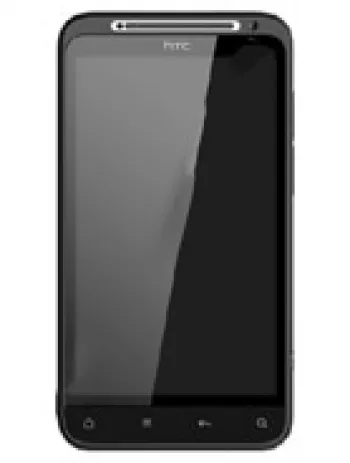
Overview of HTC Rider
The HTC Rider, although not officially announced, remains a noteworthy device in the annals of smartphone history. With specifications that were deemed advanced for its time, it catered to a particular segment of tech enthusiasts. Known for its potential in terms of performance and functionality, the HTC Rider was eventually discontinued but left an imprint owing to its features and design.
Display
The device boasted a 3D S-LCD display that measured 4.3 inches, equating to a screen-to-body ratio of approximately 51.0 cm2. The 540 x 960 pixel resolution, which maintained a 16:9 aspect ratio and a pixel density of around 256 ppi, ensured that the display offered vibrant colors and sharp visuals, attributes highly regarded by multimedia and gaming enthusiasts.
Platform
Running on the Android Operating System with HTC’s Sense UI overlay, the HTC Rider provided a user-friendly interface with enhanced customization options. The device was powered by a Qualcomm MSM8660 Snapdragon S3 chipset, featuring a dual-core 1.2 GHz Scorpion CPU and Adreno 220 GPU. These specifications offered respectable processing power and graphics capabilities for the era, allowing for smooth multitasking and satisfactory gaming experiences.
Memory
The HTC Rider was equipped with 1GB of RAM, providing sufficient memory for applications and processes active at the time. Moreover, the device's storage could be expanded via the dedicated microSDHC card slot, addressing the needs of users who required additional space for apps, music, and media files.
Camera
The smartphone featured a single 8 MP main camera with autofocus and an LED flash, delivering reasonable photo quality and video recording capabilities. Additionally, there was a front-facing 1.3 MP selfie camera. While not extraordinary by today's standards, these cameras were capable of capturing acceptable images suitable for social media sharing and casual photography.
Battery and Build
The HTC Rider included a removable Li-Ion battery, a feature that allowed users to switch batteries conveniently, prolonging device usability throughout the day. Despite the absence of official dimensions and weight, the phone's build incorporated a mini-SIM slot, supporting a compact and efficient design strategy. The aesthetic appeal of the device further extended to its color offerings, primarily available in black.
Connectivity and Network
The Rider supported diverse connectivity options, catering to both 2G (CDMA 800/1900) and 3G (CDMA2000 1xEV-DO) bands. It also featured technology such as EV-DO Rev.A for speeds up to 3.1 Mbps and HSPA, ensuring fast data transfer rates. For local wireless connectivity, the phone was equipped with Wi-Fi 802.11 b/g/n, WiMAX 802.16 e, DLNA, and hotspot capabilities. Complementing these were Bluetooth 3.0 with A2DP and EDR, GPS with A-GPS, and microUSB 2.0, providing robust connectivity and data-sharing options.
Sound and Additional Features
A loudspeaker and a 3.5mm jack were part of the HTC Rider’s audio features, promoting ease of listening to music and videos. The phone also embedded several sensors including an accelerometer, gyro, proximity sensor, and compass, which facilitated interactive applications and enhanced user experiences. Browser support was limited to HTML, aligning with the standard capabilities of the time for internet browsing.
Conclusion
In retrospect, the HTC Rider, while discontinued and never officially released, symbolized a period of innovation and evolution in smartphone technology. Its advanced features for the time, expandable storage, and comprehensive connectivity options made it a precursor to the capabilities found in subsequent smartphone models. Although it resides in the shadows of modern devices, the HTC Rider remains a valued part of the technological journey.
Key Features of HTC Rider
- Supports multiple network technologies: CDMA, HSPA, EVDO.
- Advanced display with 3D S-LCD technology.
- Large 4.3 inches screen with a resolution of 540 x 960 pixels.
- Powered by dual-core 1.2 GHz Scorpion CPU and Adreno 220 GPU.
- Expandable memory with microSDHC card slot.
- 8 MP main camera with autofocus and LED flash.
- Includes a 1.3 MP front-facing camera.
- Comprehensive connectivity with Wi-Fi, Bluetooth 3.0, and GPS.
- Features various sensors: accelerometer, gyro, proximity, compass.
- Equipped with Android OS and Sense UI for smooth user experience.
HTC Rider Key Disadvantages
- Device was never officially announced.
- Status is discontinued, making support and parts scarce.
- Lacks modern connectivity standards; only supports CDMA and HSPA.
- No detailed information on device dimensions and weight.
- Low internal storage capacity with only 1GB RAM.
- Front camera resolution is quite low at 1.3 MP.
- No information available on video capabilities of the selfie camera.
- Uses older Bluetooth version 3.0 rather than a more recent version.
- Display resolution and pixel density may not meet modern standards.
- Battery is of removable type, which is less common with modern devices.
View Also
More Phones
All Rights Reserved +14266 Phones © Mobilawy 2025
























